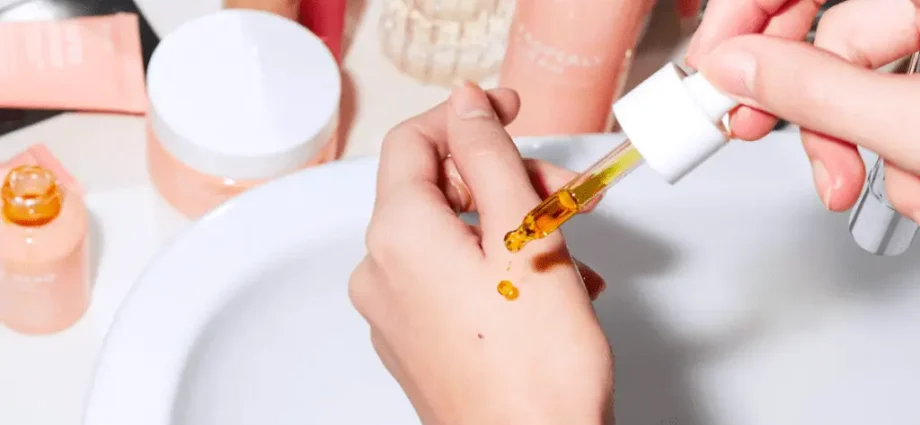Contents
content
Causes of skin itching in oncology
Itching of the skin is one of the signs of some types of cancer (lymphoma, leukemia), in some cases itching occurs directly around the tumor; in most cancer patients, there is also increased dryness of the skin, which provokes itching. In addition, pruritus may be a consequence of the use of drug therapy for malignant tumors or radiation therapy.
The main task of chemotherapy and radiation therapy for cancer is to slow down or stop the uncontrolled division of cancer cells. However, the human body is a complex system in which everything is interconnected in one way or another, so radiation or a chemotherapeutic attack on a malignant neoplasm can cause various side effects. Before starting a course of treatment, the physician should prepare the patient for possible adverse effects of therapy and explain how they can be mitigated. The task of the attending physician is to ensure the effectiveness of treatment and minimize the consequences. Meanwhile, the reaction of each organism is individual, and it is impossible to predict side effects with accuracy: for some, the consequences of therapy are barely pronounced, someone suffers from a whole bunch of side effects. Often, adverse events appear on the patient’s skin.
According to statistics, up to 80% of cancer patients face one or another manifestation of skin toxicity (pathological reaction of the skin to the therapy of malignant diseases).
Skin toxicity can manifest as scaling and itching during radiation therapy, and itching can also develop during chemotherapy. Sometimes itching is accompanied by pigmentary changes in the skin, redness, photosensitivity, urticaria. The patient should immediately inform the attending physician about all such manifestations. In each specific situation, the doctor will recommend special skin care and / or treatment. In some cases, the problem resolves itself some time after the end of the course of treatment.
Why Skin Can Be Dry After Chemotherapy
A number of substances that make up chemotherapy drugs directly affect healthy skin cells, slowing down their functioning, other substances can slow down the work of the sebaceous glands of the skin, the hydrolipidic mantle on the skin ceases to perform its protective functions, the skin becomes vulnerable to environmental factors and there are sensations of dryness and itching.
Particularly at risk are areas of the body where the surfaces of the skin are in contact: in the groin, between the buttocks, under the armpits, under the mammary glands, between the fingers and toes. Itching, like pain, refers to the feelings of the skin, but if we try to avoid touching the sore spot, then we want to comb itchy skin all the time. Constant scratching leads to bleeding wounds, and they open the way for a possible infection.
To eliminate itching after chemotherapy, first of all, it is necessary to determine whether it is caused by an allergic reaction to the prescribed drugs. It should be remembered that, regardless of the causes of itching in oncology, the patient’s skin requires daily careful care using special products.
What should patients do to prevent or relieve itching?
- Refrain from scratching itchy skin areas, cut nails short and limit touching irritated skin areas with light stroking
- Observe general hygiene, keep the body clean
- Do not use soap, preferring gentle products that do not overdry the skin
- Less frequent shaving
- Avoid hot baths, pools with chlorinated water
- Do not use hard washcloths, do not rub the body with a towel, it is allowed to gently blot
- Refuse clothes made of coarse and prickly fabrics, give preference to cotton with a smooth texture
- Wear comfortable, loose-fitting clothing
- Do not visit the solarium, do not expose the skin to direct sunlight (use sunscreen, wear wide-brimmed hats, long sleeves, etc.)
- Do not use foods that are potential allergens
- Do not use lotions containing a large amount of ethyl alcohol, perfumes
Among La Roche-Posay cosmetics there are products designed specifically for dry skin and with a pronounced moisturizing effect.
For skin care, look for soft and nourishing products, such as a lipid replenishing balm.
LIPIKAR BAUME AP+M (LIPICAR BALM AP+M)
Where can I buy
Lipid-replenishing emollient bath oil is suitable for cleansing and preparing the skin for balm application.
LIPIKAR OIL AP+ (LIPIKAR OIL AP+)
Where can I buy
It should be noted that both funds include soothing ingredients. With daily use, this complex of products will significantly improve restoration of the protective functions of the epidermis, moisturizes the skin, soothes it, reduces the feeling of itching. On irritated skin, try applying CICAPLAST BAUME B5 repair agent (CICAPLAST BALM B5). Thermal water in the form of a spray has a calming effect. Spray water on sensitive areas of the skin. Blot the remaining water with a tissue.
If you are unsure about something regarding skin care, please consult a dermatologist or your doctor.
What to do and how to relieve itching in oncology
To establish the causes and choose the right treatment for itching in oncology, in some cases it will be necessary to conduct additional diagnostics.
However, taking into account the fact that skin problems are observed quite often at the stage of cancer therapy, it is better to be proactive, take precautions and build special skin care before treatment in order to prevent the development of skin complications. If needed, doctors may recommend antihistamines, corticosteroids, or non-steroidal medications to relieve symptoms of itching. In areas of skin contact – in the groin, between the buttocks, under the armpits, under the mammary glands, between the toes – you can use baby powder (for example, cornstarch).
Any drugs are used only after consultation with the attending physician or a specialist dermatologist.
After treatment, it is also extremely important to lead a healthy lifestyle and regularly care for the skin using appropriate products. La Roche-Posay offers a wide range of skincare products for different skin types.










